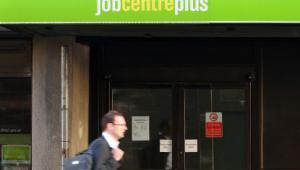Seventy per cent of these children, living in what is called ‘relative poverty’, were in working families, the figures from the Department for Work and Pensions, released on Thursday last week, showed.
The Households Below Average Income data also revealed children living in ‘absolute poverty’ increased by 200,000 in 2017-18 from 3.5 million in 2016-17.
Absolute poverty is defined as those living on less than 60% on the national median income as of 2010-11. Both these absolute and relative figures do not account for housing costs.
Risk of poverty for children in families with three or more children jumped from 32% in 2012 to 43% in 2017-18 after housing costs, the government figures revealed.
Alison Garnham, chief executive of Child Poverty Action Group, said: “[These] poverty figures make grim reading with more than 4.1 million children still in poverty and a jump in the proportion of poor children in working families.
“Investing in children is the most significant investment we as a nation can make in our future. We share a moral responsibility to protect children from hardship and enable them to fulfil their potential, but deep social security cuts for working and non-working families are restricting the life chances of a whole generation.”
Garnham called on the government to end the benefit freeze, a move which the charity Joseph Rowntree Foundation estimated would lift 200,000 out of poverty. The freeze is currently set to end in 2020.
Campbell Robb, chief executive of the JRF, said: “It is unacceptable that despite record levels of employment, millions of people are finding it hard to achieve a decent life.”
Frank Field, chair of the work and pension select committee, in response to the statistics told the House of Commons it was “horrifying [that] we live in a country where people are cold and hungry and pushed into destitution”.
A government spokesperson said: “Tackling poverty will always be a priority for this government, and we take these numbers extremely seriously.
“Employment is at a record high, wages are outstripping inflation and income inequality and absolute poverty are lower than in 2010. But we know some families need more support, which is why we continue to spend £95bn a year on working-age benefits.”
Work and pensions secretary Amber Rudd told the House of Commons she would work “tirelessly” to tackle the root causes of poverty, in particular child poverty.











